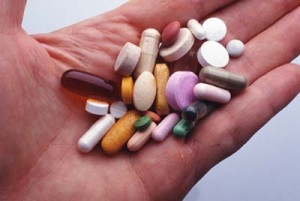
During the month of March, people often think of lucky four-leaf clovers, chasing leprechauns, and finding a pot of gold at the end of a rainbow. It’s the month of luck after all!
Sure, finding a pot of treasure or stumbling upon a stash of golden horseshoes would be lucky, but the chances of that happening—unless you’re a treasure hunter–are slim to none.
That’s ok.
At The Center for Natural Breast Reconstruction, we believe it’s best to create your own luck, so that every day can be a great day!
Keep reading to discover some of our favorite ways you can remind yourself just how lucky you really are and show gratitude for everything you have.
Reflect on the Good Things in Life
It’s really easy to get caught reflecting on the bad things in life…like being diagnosed with cancer, losing a loved one, or being stressed out at work.
Yet, when we take a minute and begin to reflect on the good things in life, we realize there is often more good than bad happening in our lives.
Think about how lucky you are to have loving friends and family in your life that are there to support you whenever you need them. If you don’t have a lot of close friends or family, perhaps you have a pet that is always available for a snuggle.
Do you have a home, a warm bed to sleep in, and food to eat? Sadly, there are many people in the world that don’t. We consider ourselves lucky to have those things.
Chances are you’re reading this blog post from a computer or a smartphone. Just the fact that you have access to technology is very lucky! Not to mention other luxuries like electricity, a TV to watch, the ability to call friends and family via your cell phone, etc.
You see, when you start thinking about how many good things you have in your life, you don’t need “leprechaun magic” to realize just how good you have it!
Volunteer or Help Those in Need
Sometimes the best way to realize how lucky we are is put ourselves in the same room as those who aren’t as lucky.
The best way to do this is volunteering.
Working a soup kitchen is a great way to remind ourselves how lucky we are to have food in our stomach.
Volunteering at a homeless shelter is a wonderful way to remind ourselves how fortunate we are to have our own beds to sleep in.
And spending time with sick children or adults in a hospital is the best way to show us how lucky we are for our good health—regardless of the health issues you’ve faced in the past.
Volunteer for a cause that is close to your heart, and I promise you won’t need to find a pot of gold to feel rich in your blessings.
Create Your Own Luck
Good fortune is often the result of a lot of hard work.
Think about it…many millionaires who own thriving businesses started with nothing, working out of their garages. But, with hard work, they now live a very fortunate lifestyle.
If you feel as if you’ve been stuck in a rut without any good luck, it’s time to roll up your sleeves, follow your dreams, and create your own good luck for the future.
Have the tools and resources you need to start your dream business? Do it!
Need to finish your college degree to help make a comfortable life for you and your family? Hit the books!
Do you dream of traveling the world? Start saving a little money each month to make that dream a reality.
With a little hard work and planning, you’ll have the potential to do whatever you set your mind to—how lucky is that!






